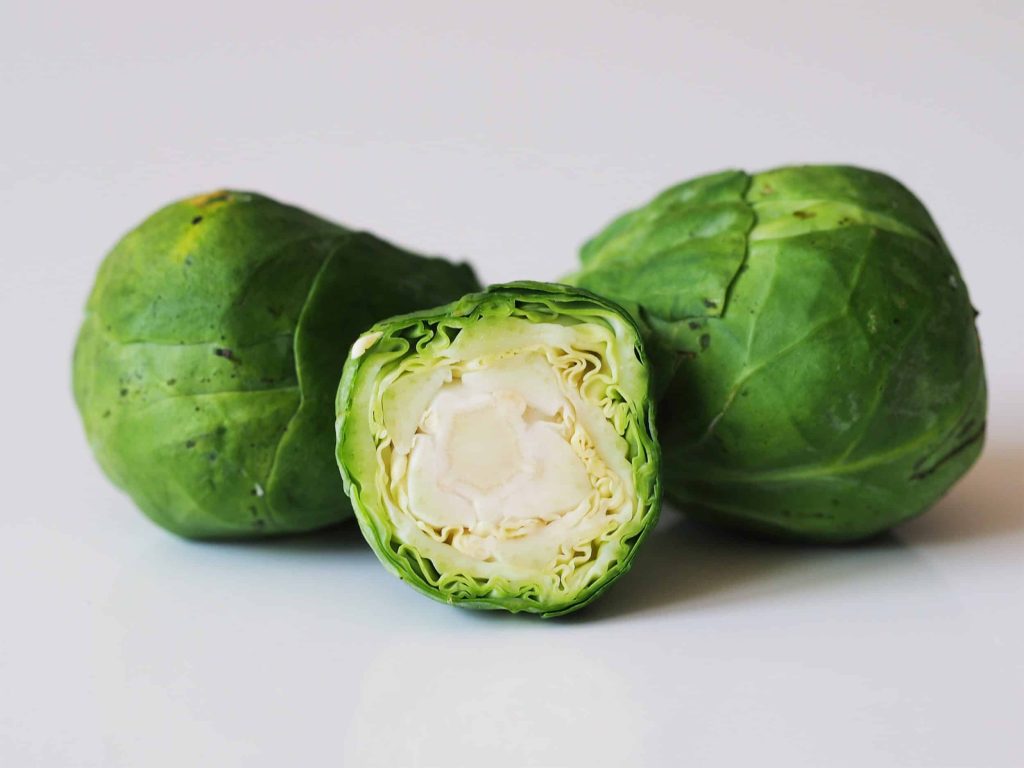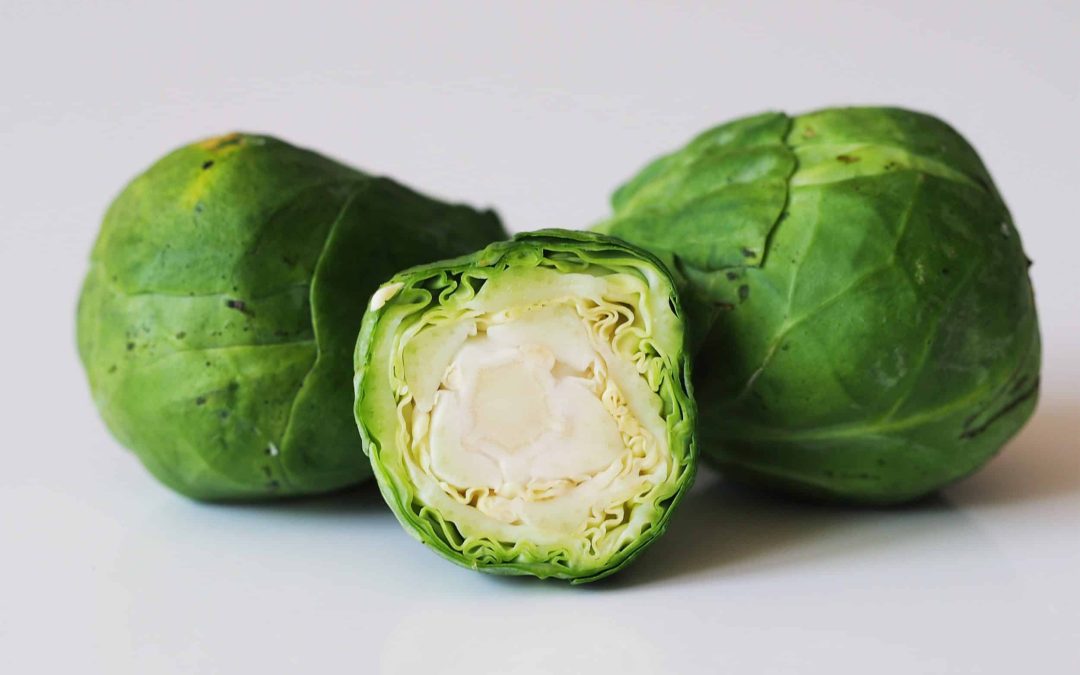Brussels sprouts are small, leafy green vegetables that belong to the Brassica family, which also includes cabbage, broccoli, and kale. They have gained popularity due to their numerous health benefits and versatility in cooking. Here’s some information about Brussels sprouts:
Brussels Sprouts Benefits:
Brussels sprouts are packed with essential vitamins, minerals, and fiber. They are a great source of vitamin C, vitamin K, folate, and vitamin A. They also contain antioxidants and are high in fiber, which promotes digestive health.
Brussels Sprouts Benefits for Skin:
The high vitamin C content in Brussels sprouts contributes to collagen production, which helps keep the skin firm and healthy. The antioxidants present in Brussels sprouts can also protect the skin from damage caused by free radicals.
Brussels Sprouts for Weight Loss:
Brussels sprouts are low in calories and high in fiber, making them a suitable food for weight loss. The fiber content promotes satiety, helping you feel full for longer and potentially reducing overall calorie intake.
Brussels Sprout Diet:
While there is no specific “Brussels sprout diet,” incorporating Brussels sprouts into a balanced and varied diet can be beneficial due to their nutritional value and low-calorie content.
Brussels Sprouts Protein:
While Brussels sprouts contain protein, their protein content is relatively low compared to other plant-based protein sources. They are not a significant protein source but can contribute to your overall protein intake.

Brussels Sprouts Meaning:
Brussels sprouts are named after the capital city of Belgium, Brussels, where they are believed to have originated.
Brussels Sprouts Recipe:
There are numerous ways to prepare Brussels sprouts. They can be roasted, sautéed, steamed, or even enjoyed raw in salads. Popular recipes include roasted Brussels sprouts with balsamic glaze, Brussels sprouts gratin, and Brussels sprouts stir-fry.
Brussels Sprouts Family:
Brussels sprouts belong to the Brassicaceae family, also known as the cruciferous or mustard family. Other members of this family include cabbage, broccoli, cauliflower, kale, and radishes.
Brussels Sprouts Origin:
While Brussels sprouts are often associated with Belgium, their origin can be traced back to ancient Rome. They were later cultivated and popularized in Belgium during the 16th century.
What Are Brussels Sprouts Good For
Brussels sprouts are good for promoting overall health due to their high nutritional content. They provide important vitamins and minerals, support digestion, contribute to heart health, and offer antioxidant and anti-inflammatory benefits.
Brussels Sprouts and Weight Loss:
Brussels sprouts can be beneficial for weight loss due to their low calorie and high fiber content. They can help you feel full while providing essential nutrients, making them a nutritious addition to a weight loss diet.
Brussels Sprouts and Liver Health:
Brussels sprouts, like other cruciferous vegetables, contain compounds that support liver health. They can help in detoxification processes and promote the health of liver cells.
Is a Brussels Sprout a Fruit:
No, Brussels sprouts are not fruits. They are a type of vegetable and are classified as buds that grow on the stem of the plant.
Brussels Sprouts Pronunciation:
Brussels sprouts are pronounced as “BRUS-uhl sprouts” with the emphasis on the first syllable.
Remember to consult with a healthcare professional or registered dietitian for personalized advice regarding your specific dietary needs and health goals.

